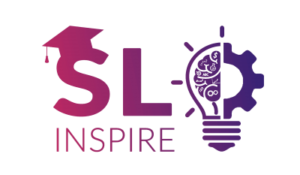[vc_row][vc_column][vc_column_text]Sri Lanka boasts with the highest reported youth literacy rate in South Asia at 98.7%. The credit primarily goes to the well-established primary education system. However, going beyond the primary level, the stats are far from being impressive. The lack of resources in tertiary education (e.g., limited capacities in universities) has made the Advanced Level (A/L) exam, quite competitive.
Read more about the education landscape in Sri Lanka and current challenges.
Education is an indispensable part of the development equation of the citizens and their countries. It is accepted that equitable participation in quality education must be at the center of the global sustainable development agenda. Through SLInspire, we strive to provide equal access to quality education to all student communities in Sri Lanka. To achieve that, SLInspire provides online educational resources that are critical to assist the journey through A/Ls and beyond.
As the starting point of SLInspire, we have identified six (6) main challenges faced by different student communities in Sri Lanka. Over time, we will be adding more components on top of these to enhance our services.
1. Online Forum When a question comes up during studies, the student has to meet a teacher or get help from other fellow students. Meeting a teacher might not be possible as soon as desired. If finding the solution is critical to understanding the subject matter, that can reduce the student’s productivity as well. We have developed an online forum that will give quick answers from the community while the quality of answers is ensured by moderators. Visit the SLInspire online forum page to sign up and get engaged.
2. Past Paper Archive At the A/L exam, each paper is graded according to a marking scheme (assessment criteria) to make sure each paper is given marks consistently. Even though this is given to all school teachers, the papers together with the marking schemes are not readily available online. Through SLInspire, we provide an archive of past A/L papers together with their marking schemes for students to download and review their work. The readily available resources will help students get practice and review their work. Analyzing work with marking schemes will teach students how the answers should be structured to gain maximum marks.
3. Question Bank To do well in the highly competitive exams, it is important to get as much practice as possible by answering mock-exam questions. Many students consider completing past papers to be not sufficient. Therefore, they tend to search for other similar questions to get practice from. The Question Bank consists of standard multiple-choice type questions (MCQ) students can use to prepare more before facing the A/L exam.
4. Career Compass Web In 2017, out of all the qualified students (160,517) from the advanced level (A/L) examination in Sri Lanka, only 0.8%, 1%, 3%, and 0.2% got admission to the highly sought after degrees – medicine, engineering, management, and law, respectively [Source: Sri Lanka University Statistics 2017]. More than 95% of the students have to select other degrees in government universities or look for opportunities in private universities. The awareness of other degrees and their career opportunities is very less among the student population. The Career Compass Web is an online portal where students can enter their exam results and get to know all the degrees they are eligible to follow together with their career opportunities.
5. Career Compass Seminars Complementing the Career Compass Web, the Career Compass Seminars are held to give students a broad perspective about tertiary education. The sessions give an overview of all government, private university opportunities and courses in vocational training institutes. Once students have an overview in mind, the Career Compass Web can give specific details. The Career Compass gives power to the students to make a well-informed choice about their tertiary education.
6. Lab Videos Completing laboratory experiments, especially for subjects such as Chemistry, Physics and Biology is very important to properly grasp the content. Yet, most schools don’t have the necessary facilities for each student to do the experiments by themselves. For example, out of all schools in Sri Lanka, only 3.4% are categorized as “National Schools” which is funded by the government [Source: Sri Lanka School Census Report – 2017]. More than 80% of the schools are managed by “Provincial Councils” which doesn’t get all facilities of National Schools due to financial difficulties. As a result, many Provincial Schools suffer from poor facilities and a shortage of teachers. The Lab Experiment Videos are created so that students can at least visualize the experiments.[/vc_column_text][/vc_column][/vc_row]

